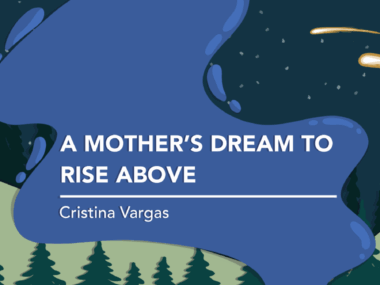My Rare Disease Day Challenge to Clinical-stage Companies
Written by |

The world will soon celebrate Rare Disease Day. The 2020 edition falls on Feb. 29 — a rare day, indeed.
EURORDIS founded Rare Disease Day in 2008 to raise awareness for rare diseases. Patients, caregivers, and stakeholders celebrate recent strides toward treatments and acknowledge the uniqueness of the 400 million people living with a rare disease.
Rare Disease Day is a perfect time to remind our friends and colleagues of their responsibility to patients and families.
A life and legacy
When I co-founded nonprofit Taylor’s Tale in 2007, I still had a shot at saving my little sister’s life. Taylor was 8 when she received her Batten disease diagnosis. Taylor was a precocious reader who struggled with math and seeing at night, but she looked and acted like a typical third grader.
By 2012, however, I knew our hard work would never help Taylor. Either my sister was born 10 years too early or the search for a cure began 10 years too late. Either way, the writing was on the wall. We were working for future Taylors.
A possibility and a pause
Our work took a giant leap forward in 2013. Taylor’s Tale signed on to fund CLN1 disease gene therapy research at the University of North Carolina (UNC). Three years later, the study’s principal investigator, Steven Gray, had enough promising data to attract industry interest.
This past June the Food and Drug Administration (FDA) granted Fast Track designation to Abeona Therapeutics Inc’s ABO-202 program. Abeona was cleared to begin a Phase 1/2 clinical trial that would evaluate its one-time AAV9 gene therapy based on Gray’s work at UNC.
In other words, Abeona has had the green light from the FDA to enroll patients for about eight months. (On Feb. 24, my editor asked Abeona Therapeutics why they haven’t begun enrolling, but they have not responded.)
Green light or no, I see a lot of red — anything but “go.” I see families like mine with children like Taylor. Children who are running out of time. Children who need help now.
Finish the race
I understand how the industry works. When Taylor’s Tale proposed the nation’s first rare disease advisory council in 2015, we shared how investing in rare disease patients could result in good business for biotech companies and regional prosperity. I didn’t ace my college economics class, but I grasped the basic principles.
Nearly five years later, our words still ring true. Companies such as Pfizer and Merck recognize the value of rare disease interventions. It all started with the passage of the Orphan Drug Act in 1983. A decades-long crawl has finally accelerated to near race pace.
I appreciate a for-profit company’s desire — and, yes, right — to make decisions with dollars in mind. But when you start a company to bring cutting-edge rare disease treatments to market, you know what you’re up against. You know the number of people who will be impacted is, by definition, relatively small. You know your market won’t include many patients.
You knew all of that, and you still entered the race.
My challenge
Every few months or so, I run a half-marathon. If you catch me complaining at any point during those 13.1 miles, I permit you to tell me, “You asked for it.” After all, my participation in races is 100 percent voluntary. Heck, I even pay for the privilege of running the race!
On behalf of patients like my sister, I challenge all clinical-stage companies committed to rare diseases to finish the race you signed up to run. Patients and their families are counting on you.
***
Note: Batten Disease News is strictly a news and information website about the disease. It does not provide medical advice, diagnosis, or treatment. This content is not intended to be a substitute for professional medical advice, diagnosis, or treatment. Always seek the advice of your physician or other qualified health provider with any questions you may have regarding a medical condition. Never disregard professional medical advice or delay in seeking it because of something you have read on this website. The opinions expressed in this column are not those of Batten Disease News or its parent company, Bionews Services, and are intended to spark discussion about issues pertaining to Batten disease.





Leave a comment
Fill in the required fields to post. Your email address will not be published.